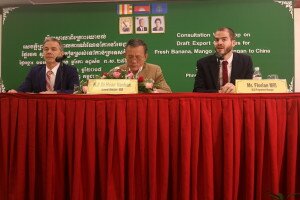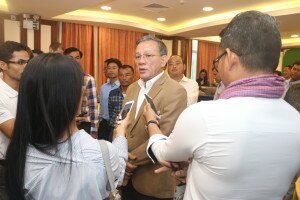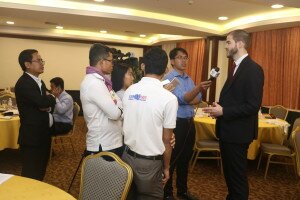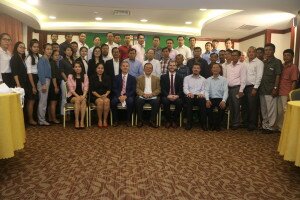
Opening remarks
05 April 2018
ASEAN China Free Trade Agreement (ACFTA) framework was signed in November 2002 in Phnom Penh, Cambodia, and came into effect in January 2010. It marked a significant milestone in pursuing greater economic integration in the region. ACFTA became the largest free trade area in the world in terms of population and the third largest in terms of nominal GDP, trailing the European Economic Area (EEA) and North American Free Trade Area (NAFTA). Under the free trade agreement, tariffs are reduced to zero on almost 8,000 product categories. China and the six more advanced ASEAN nations (Brunei, Indonesia, Malaysia, the Philippines, Thailand, and Singapore) had progressively removed 90 percent of tariffs by 2010, while Cambodia, Lao PDR, Myanmar and Viet Nam (CLMV) did so in the following five years. ACFTA significantly led the integration process in the region, even though many non-tariff barriers (NTBs) and other trade obstacles still remain.

Press release of H.E Dr. HEAN Vanhan, Director General of General Directorate of Agriculture

Press relaease of Mr. Florian Miss, Programme Manager of SCSI
.
To facilitate trade to China, the regional GIZ programme Support for Economic Cooperation in Sub-Regional Initiatives in Asia (SCSI), commissioned by German Federal Ministry for Economic Cooperation and Development (BMZ) supports Cambodia, Lao PDR, and Viet Nam. In order to map export regulations frame works and awareness-raising for the potentials of ACFTA. Together with partners on site, the programme improves technical assistance on existing NTBs in the agricultural field for export-oriented small and medium sized enterprises (SMEs).
Against this background, SCSI in cooperation with the General Directorate of Agriculture (GDA) organized a Consultation Workshop on drafted guidelines to facilitate export of fresh banana, mango and longan to China. The workshop was held on March 27, 2018 in Phnom Penh. to review and get inputs from participants involved in trading the respective products to improve the drafted step-by-step guidelines. Altogether 57 participants attended the workshop, including representatives from GIZ, public sector (GDA, MoC-Camcontrol, and Custom), traders, associations, logistics companies and producers. The guidelines aim to improve Cambodian businesses to export capacity to China and improve the public-private dialogue as well as political processes between Cambodia and China.

Group photo
Contact:
Ra Ten
Technical Advisor-Trade Facilitation
Support for Economic Cooperation in Sub-Regional Initiatives in Asia (SCSI), Cambodia
www.connecting-asia.org
isclaimer
Data Protection
Disclaimer
